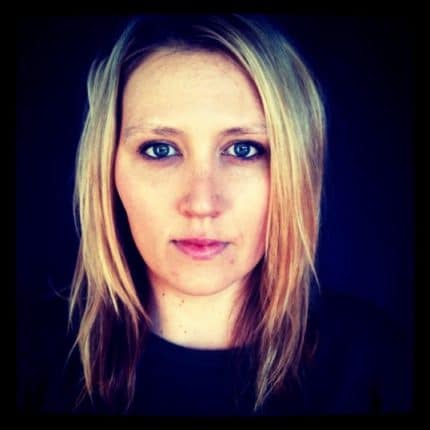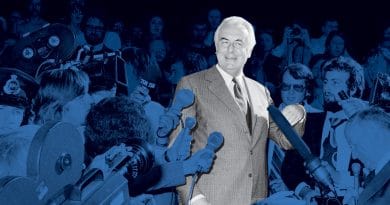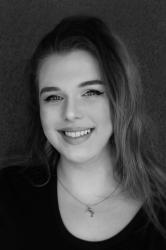Whale swims into Northcote Town Hall in May
Whale takes its audience on a journey from a town hall meeting into the belly of a whale.
A brilliant new play and winner of Playwriting Australia’s 2018 Max Afford Playwrights’ Award, Whale tackles global issues of political inaction and climate change in an interactive, participatory environment. Each audience member’s presence represents an island in peril, and those selected for participation have an active responsibility in the action of the play.
Written by Fleur Kilpatrick and directed by Katrina Cornwell, Whale makes its world premiere as part of the Darebin Arts Speakeasy Program at Northcote Town Hall in May, and will have a second season at Monash University as part of MLIVE’s Progress program.

Fleur Kilpatrick is an award-winning playwright, director and arts commentator. Her plays have won several awards including the Jill Blewett Award (2016, for Blessed), and the Melbourne Fringe Emerging Playwright Award (2015, for The City They Burned). Other works include Terrestrial (2018, State Theatre Company of South Australia), Welcome to Nowhere (2015, CTP at Malthouse Theatre), Awake (2012, Adelaide Fringe/La Mama), and Our Bodies and What Happens When They Get Together (2010, VCA). Some of Fleur’s directorial credits include Julius Caeser (Essential Theatre) and Slaughterhouse Five (MUST, original adaptation).
Katrina Cornwell is a director, performer, facilitator and founder/Artistic Director of youth theatre company Riot Stage. She has taught performance both nationally and internationally for over a decade. Past directorial credits include Love and Information (2016), Forever City (2015), So Much Yes (2013) and Animal Farm (2013). As a performer, Katrina has worked throughout Australia, Europe, Asia and America, with credits including Virgins and Cowboys (Motherboard Productions/Theatreworks), Deluge (Motherboard Productions/Brisbane Festival/Seoul SIDance Festival) and The Hamlet Apocalypse (La Boite Theatre/Danger Ensemble/Melbourne Fringe/Adelaide Fringe).
I spoke to Fleur and Katrina ahead of the play’s premiere this month about what audiences can expect from this whale of a show.

Can you tell me a little bit about your history with theatre making?
Kat: I began as an actor and devisor with a love of physical and visual theatre. I trained and performed extensively within this genre, travelling internationally. As I transitioned into directing my interests shifted. I was fascinated by theatre that had an element of liveness. Physical theatre necessitates precision, choreography and repetition: there is little room to respond to the nightly difference in the audience. I am drawn towards works that is post dramatic, interactive, or has a game structure because it demands connection in the room. I should also say that I often do this sort of work with young people who I have discovered are naturally good at it.
Fleur: I’ve been a playwright for a long time. I’m 32 and I wrote my first play at 16 so that’s half a lifetime. It took me a while to start writing about climate change. It was so big and frightening that I didn’t know how to tell respond and what a playwright could possibly offer. There is always the question of ‘am I preaching to the choir’. It took me years to realise that the choir needs support, rallying and to be told that they are powerful.
How is Whale different from other plays?
Kat: Whale is unlike any other play. Often interactive performances are created through a devised process. Fleur, in her ambition, has written a participatory theatre work where audience members become key players in the story, therefore the performance of key characters will change nightly. I know that people always say that plays are ‘layered’, but Whale takes it to a new level. The play itself is a critique of the truth and lies we are told and we tell ourselves about climate change. Whale continually reminds the audience that ‘This is a play. It’s not real’ whilst daring us to grapple with the ugly truth of our situation. The line between truth and fiction continually twists and turns, implicates and then exonerates the audience. Also there is a sacrifice. Also there is a character called ‘Whale’.
Fleur: I like Kat’s answer. But for me as a playwright, it was a very different process to previous plays. One key thing is I knew Sonya Suares, who plays the host, very well. From the beginning, I wrote the role of the host for her so Sonya’s voice feels like a real part of my process. The other actors came a little later in the process but when it came to development, all three actors gave so much of themselves so it feels really personal to us all. As Kat says, this is not a devised play, but it is a play written with the immense generousity and fearlessness of my collaborators in mind and I think that informed a lot of how I wrote. I’ve known that Kat would be directing it for the last five drafts. I feel that – while I’m quite controlling in terms of the words said and poetic metre of my scripts – I have left a lot of room for Kat’s energy and creativity. It is such a delight to write a world for your favourite theatre-makers to play in.
What is your favourite part of interactive theatre?
Kat: We invite the audience onstage in order to invite the unknown into the room. Everyone is aware that this performance is completely unique. It makes everything feel heightened, and like we are all on this ride together. It’s a connectivity that I crave. European theatre legends Gob Squad talk about how careful interaction with audience members engenders a ‘radical empathy’ in the rest of the audience because they recognise and empathise with the vulnerability of those onstage. I love that term and it describes the feeling perfectly.
Fleur: I think there is a special kind of tension that interactive theatre can create. I don’t just mean the fear of ‘will I be chosen’ – although we’ve harnessed that fear too – but just the tension of watching someone like you face the unknown. I love that. Watching someone come in off the street and attempt to save the world makes us feel powerless and powerful which is really central to the play. I suppose this leads onto the thing I like most about interactive theatre: I like it to feel not only justified but integral to the ideas we are exploring and the story we are telling. As a maker, I’ve really enjoyed the challenge of writing with these big Unknowns in the script. I’ve loved writing the care and safety of audience participants into the words and I really appreciate the energy it brings to a rehearsal room: we are creating a play around our future collaborators (who have not seen the script or rehearsed a single scene).
What can audiences look forward to when seeing Whale?
Fleur: Well, it is a town hall meeting to save the world. The politicians couldn’t save us. The climate scientists couldn’t save us. But here we are: 100 people ready to do what it takes. I’m really excited about the beautiful design by Emily Collett (set and costume) and Lisa Mibus (lighting) and Raya Slavin (sound composition). Our designers have really embraced the challenge of thinking sustainably and creating a space that reflects the values of this work.
Do you think theatre is a valuable tool for inciting change? Why?
Kat: Sometimes. I’ve personally seen plenty of shows where I stop thinking about it the moment I leave the theatre. But then there are some shows that come into my mind once a month and I think ‘Woah- that show captured the exact feeling of XYZ’. I’m not sure I’ve ever changed my actions in life from witnessing a play. But I think it’s about intention. Not all art seeks to make change. In directing Whale, I want people to leave the theatre with the thought ‘it’s time we save ourselves’. I want the rush of the theatre experience to translate into a need to take action.
Fleur: It can be. Something I’ve thought about a lot in this play is that this is a chance for us to rehearse what being powerful might be like. What would it feel like to actually know that this planet of ours is safe? I was born in 1986. ‘The Greenhouse Effect’, ‘Global Warming’ and ‘Climate Change’ have always been looming over me. Fear of that magnitude can be really paralysing. Theatre is great at making big, big concepts personal and immediate. I think this might be a first step in making people feel like potential change makers.
Whale will be performed at Northcote Town Hall Arts Centre from May 1-11. Tickets and more information are available at the Darebin Arts Speakeasy website.
For tickets and more information on the MLIVE Progress program run of Whale (May 16-18), please visit the MLIVE website.




